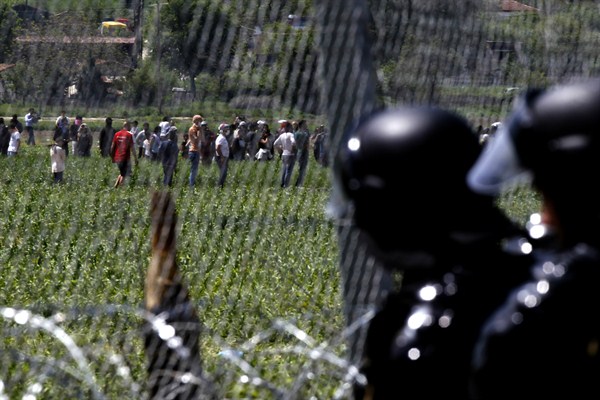Editor’s note: This article is part of an ongoing WPR series inviting authors to identify the biggest priority—whether a threat, risk, opportunity or challenge—facing the international order and U.S. foreign policy today.
As President-elect Donald Trump prepares to take office in January, he will be confronted with a number of global challenges that will test some of his most popular campaign rhetoric. As a candidate, Trump proposed an “America First” agenda that he used to explain his call for a fairer sharing of costs related to America’s military role abroad and reduced foreign assistance, among other promises. Such an agenda implies that U.S. global engagement may be more unilateral and selective based on a narrow interpretation of national security interests. His foreign policy team, however, may soon discover that implementing such a narrow agenda is remarkably difficult.
That is because instability and conflict in other parts of the world do not respect state borders. Terrorists manage to get on planes and carry out attacks around the world, sometimes as visitors, sometimes as migrants and sometimes even as homegrown extremists. Fragile states—defined as those that lack the capacity or the will to be responsive to their citizens’ basic needs and that are unable to exert control of their borders—are breeding grounds for bad actors, from terrorists to drug traffickers. Such states are also unable to maintain health systems that can respond to disease outbreaks, preventing their spread around the world, as witnessed with Ebola.

